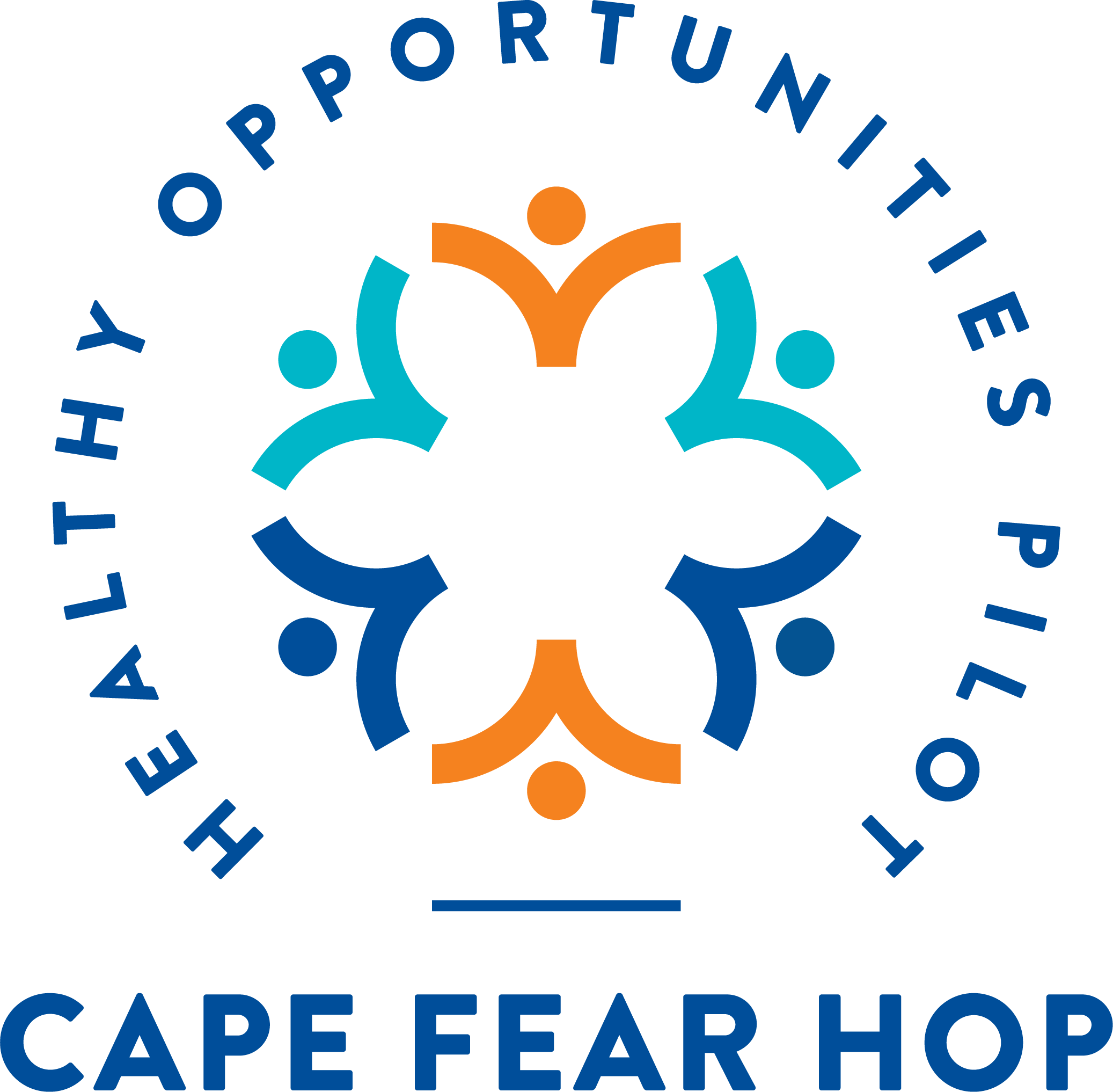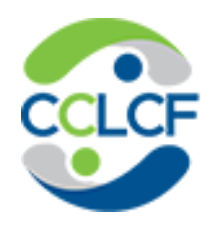
February 2022
Press Release
Wilmington, North Carolina –The Human Service Organization (HSO) Network has been formed to support service delivery in the Cape Fear region for the Healthy Opportunities Pilot (HOP). As part of NC Medicaid transformation, the federal Centers for Medicare & Medicaid Services created HOP, the nation’s first comprehensive pilot program, to test and evaluate the impact of providing nonmedical interventions related to food, housing, transportation, and toxic stress, to high-needs Medicaid beneficiaries. Health behaviors and the types of interventions listed above, often referred to as Social Determinants of Health (SDOH), drive about 80 percent of health outcomes for patients, yet little funding is available to alleviate these barriers for Medicaid patients. Community Care of the Lower
Cape Fear was one of three Network Leads chosen to pilot the program and will work within a six county region including Bladen, Columbus, Pender, Onslow, Brunswick, and New Hanover counties.
After an extensive application and assessment process, a network of Human Service Organizations was created to provide 29 non-medical, evidence-based interventions, or services, designed to reduce healthcare costs and improve health outcomes. The network HSOs will receive referrals from NC Medicaid Managed Care Health Plans and other entities approved for the pilot, deliver the services to those individuals, and be reimbursed for a fee associated with the type of service. Data will be collected to evaluate the effectiveness of the interventions and learn if this model, partnering HSOs with health care payers and providers, is sustainable and scalable for the Medicaid program statewide. If HOP proves to be effective, North Carolina Department of Health and Human Services
will explore integrating these non-medical interventions statewide for Medicaid beneficiaries;
creating a perpetual funding stream to eliminate SDOH barriers that could forever change the health trajectory of our most vulnerable population as well as change the economic viability of the agencies who often struggle to support them.
“The organizations in the network already have the experience, expertise, and community relationships to deliver these services. They are known for providing food boxes to the food insecure, adding a wheelchair ramp for greater access, linking someone to trauma-informed mental health services or transporting someone safely to a job interview,” says Sarah Ridout, HOP Program Director. “They are trusted supports within their communities and have raised their hands to participate in a pilot that could change Medicaid.” For more information about the HSOs participating in the HSO Network and Healthy Opportunities Pilot, go to https://www.carelcf.org/healthy-opportunities/ and click on the Cape Fear HOP HSO Network Directory.
About Community Care of the Lower Cape Fear (CCLCF) and Cape Fear HOP
CCLCF is a 501(c) (3) that improves health outcomes for eligible Medicare, Medicaid, uninsured and privately insured enrollees in southeastern NC including New Hanover, Pender, Brunswick, Columbus, Onslow, and Bladen counties. Our interdisciplinary Care Teams include RN care managers, social workers, pharmacists and provider support. We work with Prepaid Health Plans, ACOs, practices and providers to improve patient outcomes, experience, and satisfaction. In 2021, NCDHHS selected CCLCF as one of three organizations to be Network Lead for the Healthy Opportunities Pilot. The Healthy Opportunities Pilot is the nation’s first comprehensive program to test and evaluate the impact of providing non-medical interventions related to food, housing, transportation, and interpersonal safety to high-needs beneficiaries. Cape Fear HOP was established to represent the Network Lead and Human Service Organization Network for the pilot program.

